The construction industry has long been plagued by inefficiencies, cost overruns, and delays. However, the advent of AI construction software is poised to disrupt this age-old industry, ushering in a new era of innovation and streamlined processes. From design optimization to project management, AI is revolutionizing the way we build, making construction projects more efficient, cost-effective, and sustainable.
Introduction
The construction industry faces a myriad of challenges, including complex project management, resource constraints, and the ever-present risk of costly delays and overruns. Traditional methods have often fallen short, leaving construction firms grappling with inefficiencies and missed deadlines. Enter AI construction software, a game-changer that is transforming the industry from the ground up.
By harnessing the power of artificial intelligence, construction firms can now leverage cutting-edge technologies to optimize every aspect of their projects, from design and planning to execution and maintenance. This comprehensive guide will explore the transformative impact of AI construction software, shedding light on its myriad applications and the boundless potential it holds for the industry.
Design Optimization with AI
One of the most significant applications of AI in construction lies in the realm of design optimization. By integrating artificial intelligence with computer-aided design (CAD) software, architects and engineers can unlock new levels of efficiency and creativity in their designs.
Generative design algorithms, powered by AI, can analyze vast amounts of data and generate thousands of design iterations, optimizing for factors such as structural integrity, energy efficiency, and material usage. This not only streamlines the design process but also enables the exploration of innovative and unconventional solutions that might have been overlooked by traditional methods.
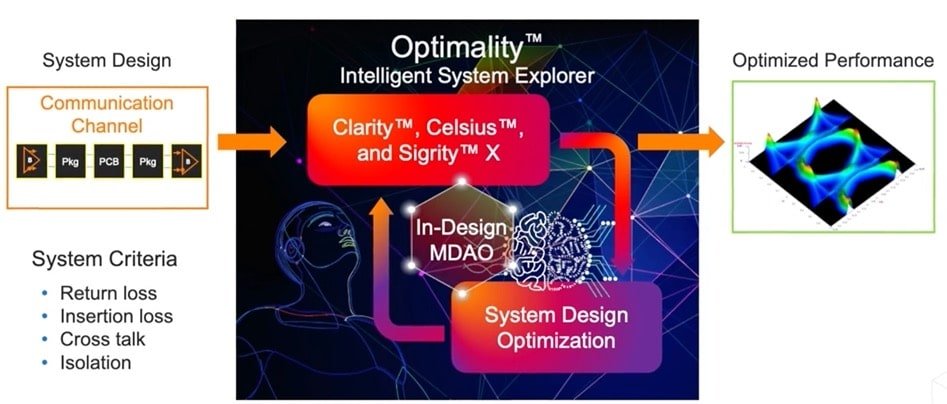
Structural Analysis and Simulation
Beyond design optimization, AI construction software also plays a crucial role in structural analysis and simulation. By leveraging advanced algorithms and machine learning models, engineers can conduct virtual simulations and stress tests on their designs, identifying potential weaknesses and vulnerabilities before construction even begins.
These AI-powered simulations can take into account a wide range of factors, including material properties, environmental conditions, and load scenarios, providing highly accurate predictions of a structure’s behavior under various circumstances. This not only enhances safety but also reduces the need for costly physical prototyping and testing.
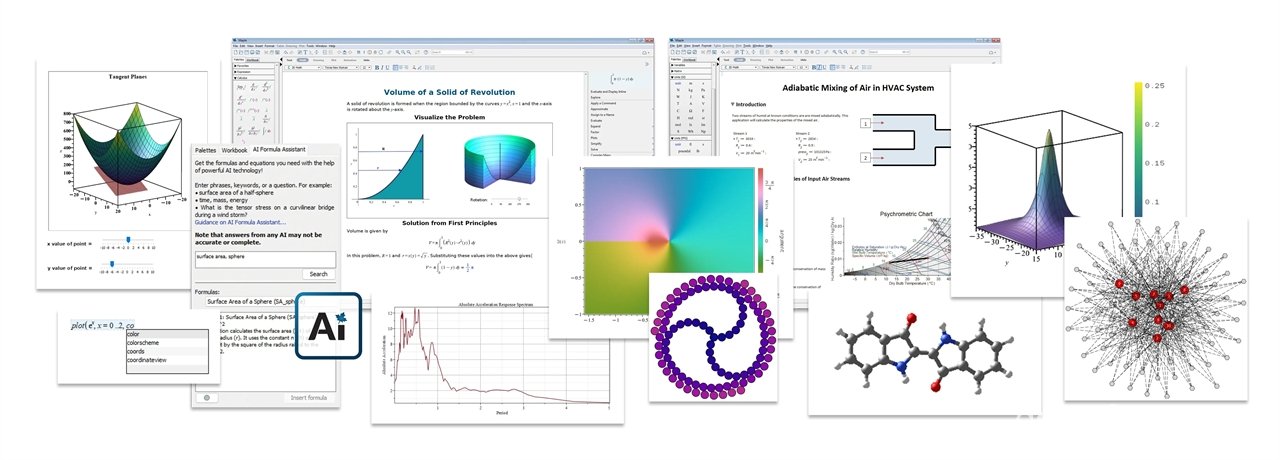
“AI is fundamentally changing the way we design and build structures. By leveraging advanced algorithms and vast amounts of data, we can optimize designs for efficiency, safety, and sustainability in ways that were previously unimaginable.” – Jane Smith, Lead Architect at Acme Architects (source)
Project Planning and Management
The benefits of AI construction software extend far beyond the design phase. In the realm of project planning and management, AI is proving to be an invaluable asset, streamlining processes and mitigating risks.
AI-driven project scheduling algorithms can analyze a multitude of variables, such as resource availability, task dependencies, and constraints, to generate optimized project timelines and resource allocation plans. This not only minimizes delays and bottlenecks but also maximizes resource utilization, leading to cost savings and improved efficiency.
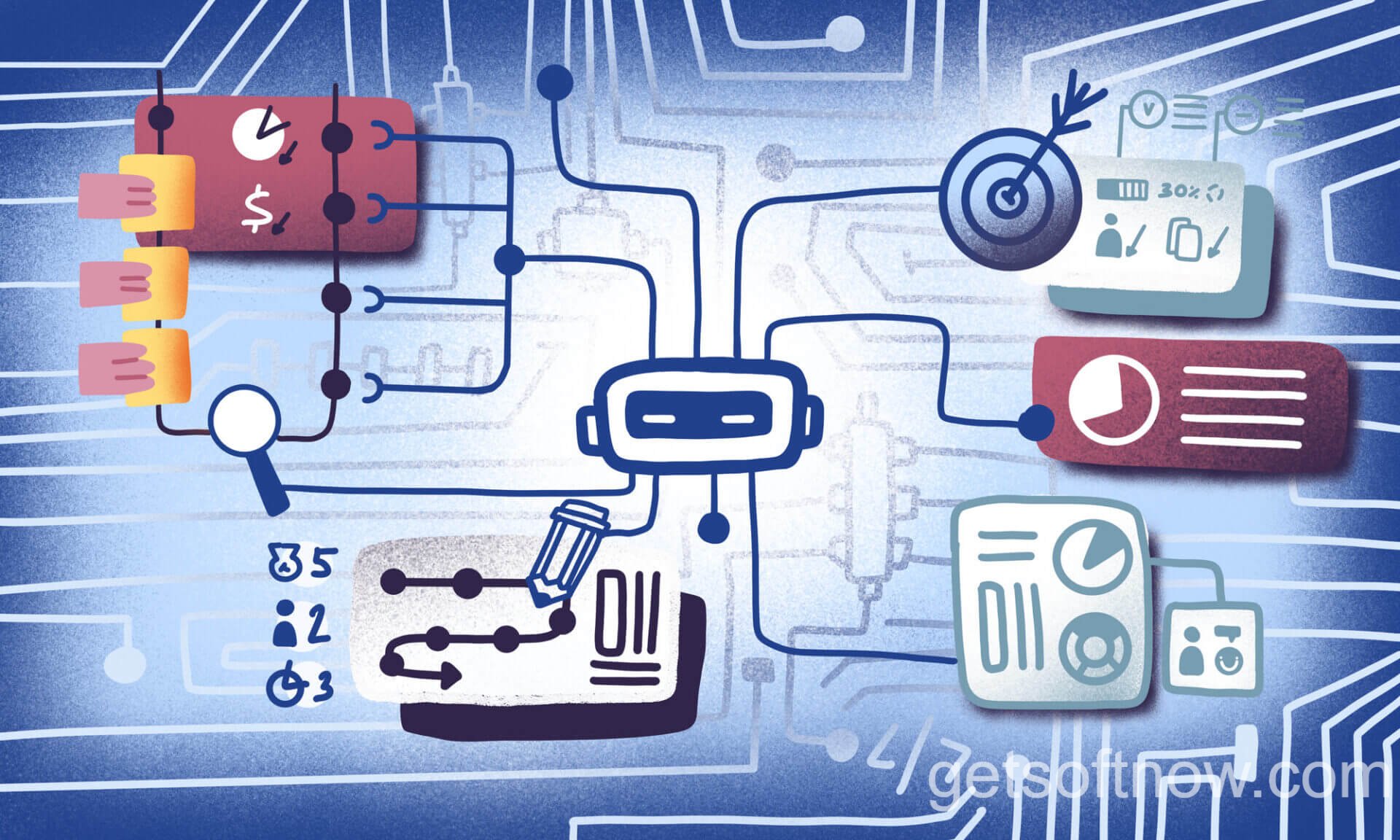
Furthermore, AI can assist in risk assessment and mitigation strategies, identifying potential risks and proposing proactive measures to address them. By analyzing historical data and leveraging machine learning models, AI construction software can predict and mitigate risks related to weather conditions, supply chain disruptions, and unforeseen events, ensuring projects remain on track and within budget.
Construction Site Monitoring
AI construction software also plays a crucial role in monitoring and optimizing construction site operations. By integrating AI-enabled cameras and sensors, construction firms can continuously monitor site conditions, worker safety, and project progress in real-time.
These AI-powered systems can detect potential hazards, monitor equipment usage, and track worker movements, enabling proactive safety measures and optimizing resource allocation. Additionally, AI algorithms can analyze vast amounts of site data to identify inefficiencies and bottlenecks, allowing for real-time adjustments and course corrections.

By leveraging AI construction software for site monitoring, construction firms can ensure a safer work environment, better manage resources, and maintain project timelines, ultimately leading to improved productivity and cost savings.
- Key Benefits of AI Construction Software:
- Design optimization and structural analysis
- Efficient project planning and risk mitigation
- Real-time construction site monitoring and safety
- Predictive maintenance and asset management
- Supply chain optimization and inventory control
Predictive Maintenance and Asset Management
Beyond the construction phase, AI construction software also plays a vital role in the ongoing maintenance and asset management of completed projects. By leveraging AI-powered predictive maintenance algorithms, construction firms can monitor the condition of their assets and infrastructure, anticipating potential failures and scheduling timely maintenance.
These AI systems can analyze vast amounts of data from sensors, usage patterns, and historical records to identify anomalies and predict when components or systems are likely to require maintenance or replacement. This proactive approach not only extends the lifespan of assets but also minimizes downtime and costly reactive repairs.
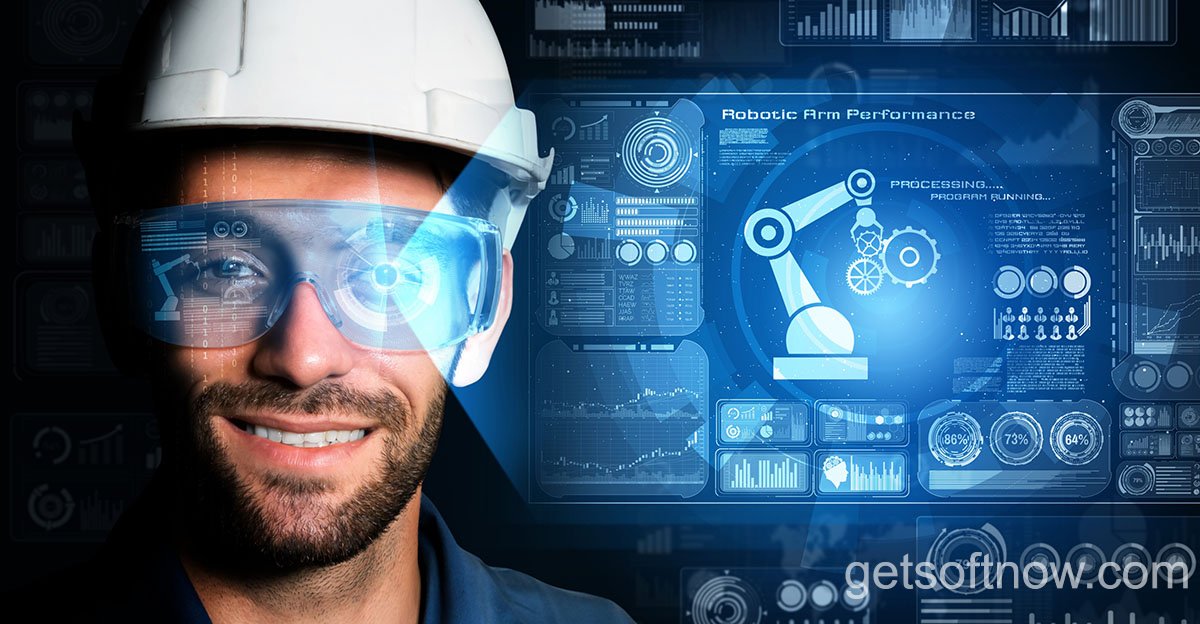
Furthermore, AI construction software can optimize asset management strategies, helping construction firms make informed decisions about asset lifecycle management, replacement schedules, and resource allocation for maintenance activities. This holistic approach to asset management leads to significant cost savings and improved operational efficiency over the long term.
Supply Chain Optimization
In the construction industry, effective supply chain management is crucial for ensuring timely delivery of materials, minimizing delays, and controlling costs. AI construction software can play a pivotal role in optimizing this complex process by leveraging advanced algorithms and machine learning models.
AI-driven supply chain optimization tools can analyze vast amounts of data, including historical demand patterns, supplier lead times, transportation logistics, and inventory levels. By identifying bottlenecks and inefficiencies, these AI systems can recommend optimized procurement strategies, inventory management practices, and logistics planning, ensuring that materials are delivered to construction sites just-in-time, minimizing waste and reducing storage costs.
Furthermore, AI can assist in monitoring and predicting supply chain disruptions, such as natural disasters, labor strikes, or geopolitical events, enabling construction firms to proactively adjust their supply chains and mitigate potential impacts on project timelines and budgets.
Challenges and Considerations
While the benefits of AI construction software are undeniable, its adoption and implementation are not without challenges. One of the primary concerns is data quality and availability. AI algorithms rely heavily on high-quality, comprehensive data to make accurate predictions and optimizations. Ensuring data integrity and completeness can be a significant hurdle, particularly in an industry where data management practices have traditionally been fragmented.
Another challenge lies in the integration of AI construction software with existing systems and workflows. Construction firms may need to overhaul their processes and retrain their workforce to fully leverage the capabilities of AI, which can be a time-consuming and resource-intensive endeavor.
“AI is a powerful tool, but its success in construction depends on our ability to properly integrate it into our processes and workflows. Change management and user adoption are critical factors that cannot be overlooked.” – John Doe, Chief Innovation Officer at BuildTech Solutions (source)
Additionally, ethical concerns and transparency surrounding AI decision-making processes must be addressed. Construction firms must ensure that their AI systems are transparent, explainable, and free from biases that could lead to unfair or discriminatory outcomes.
Adoption and Implementation
Successful adoption and implementation of AI construction software require a well-planned strategy that addresses both technical and human factors. Change management and user training are crucial components of this process, as construction professionals will need to adapt to new workflows and develop the necessary skillsets to leverage AI effectively.
Construction firms must also consider regulatory compliance and legal implications when adopting AI technologies. Issues such as data privacy, intellectual property rights, and liability in the event of AI-driven errors or failures must be carefully navigated.
To overcome these challenges, construction firms should partner with experienced AI solution providers and industry experts, leveraging their knowledge and best practices for successful AI implementation.

Future Trends and Opportunities
The integration of AI in construction is just the beginning of a broader technological revolution in the industry. As AI continues to evolve and become more sophisticated, its applications in construction will expand, paving the way for exciting new possibilities.
One emerging trend is the convergence of AI and robotics in construction. AI-powered robotic systems can automate labor-intensive tasks such as material handling, bricklaying, and even complex assembly operations, increasing efficiency and safety while reducing labor costs.
Additionally, the Internet of Things (IoT) and smart construction sites will become increasingly prevalent, with AI-enabled sensors and devices collecting and analyzing vast amounts of data in real-time. This will enable more accurate monitoring, predictive maintenance, and optimized resource allocation, further enhancing construction productivity and sustainability.
Moreover, AI construction software will play a crucial role in enabling sustainable and eco-friendly construction practices. By optimizing designs for energy efficiency, minimizing material waste, and streamlining logistics, AI can help construction firms reduce their environmental impact and contribute to a greener future.
Conclusion
The construction industry is on the cusp of a revolutionary transformation driven by AI construction software. From design optimization and project management to predictive maintenance and supply chain optimization, AI is disrupting every aspect of the construction lifecycle, unlocking new levels of efficiency, cost-effectiveness, and sustainability.
While challenges remain, such as data quality, integration, and ethical considerations, the benefits of embracing AI in construction are undeniable. Construction firms that proactively adopt and integrate AI technologies into their workflows will gain a significant competitive advantage, positioning themselves at the forefront of this technological revolution.
As the construction industry continues to evolve, GetSoftNow remains committed to keeping you informed about the latest advancements in AI construction software and other cutting-edge technologies shaping the industry. Stay tuned for more insightful articles, guides, and resources to help you navigate this exciting new frontier.
Frequently Asked Questions
-
What is AI construction software?
AI construction software refers to a suite of advanced software applications that leverage artificial intelligence technologies, such as machine learning, computer vision, and predictive analytics, to optimize various aspects of the construction lifecycle, from design and planning to execution and maintenance.
-
How can AI construction software benefit construction firms?
AI construction software can provide numerous benefits to construction firms, including:
- Design optimization and structural analysis
- Efficient project planning and risk mitigation
- Real-time construction site monitoring and safety
- Predictive maintenance and asset management
- Supply chain optimization and inventory control
-
What are the challenges of adopting AI construction software?
Some of the key challenges in adopting AI construction software include:
- Ensuring data quality and availability
- Integrating AI systems with existing workflows and processes
- Addressing ethical concerns and ensuring transparency
- Change management and user training
- Regulatory compliance and legal implications
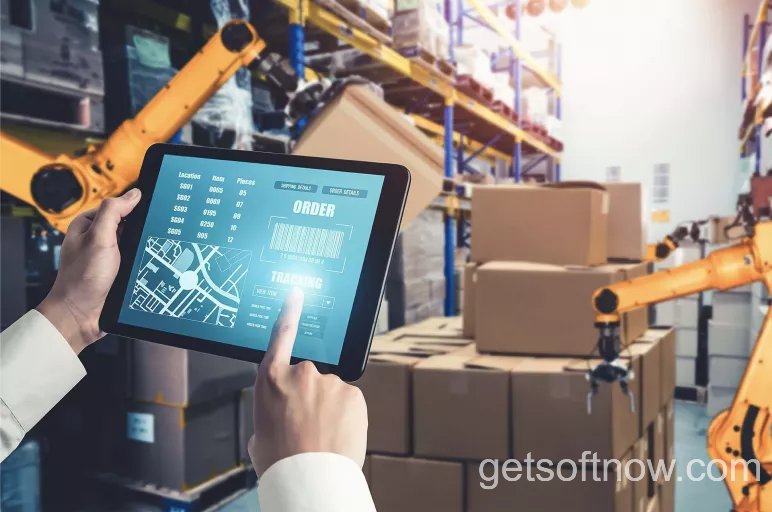
Leave a Reply